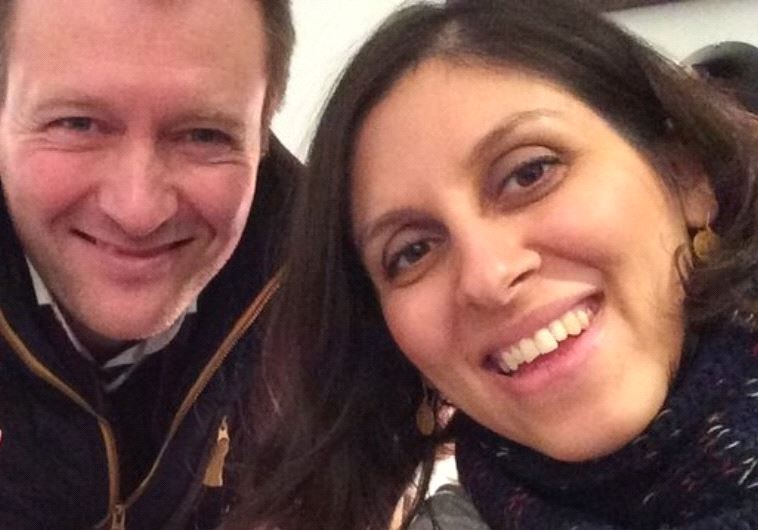Iranian FM on British prisoner: 'Iran does not recognize dual nationality'
Zaghari-Ratcliffe's husband Richard started a hunger strike outside the Iranian Embassy in London last week to draw attention to his wife's plight.
 Nazanin Zaghari-Ratcliffe (R)(photo credit: FREE NAZANIN RATCLIFFE CHANGE.ORG PETITION)
Nazanin Zaghari-Ratcliffe (R)(photo credit: FREE NAZANIN RATCLIFFE CHANGE.ORG PETITION)